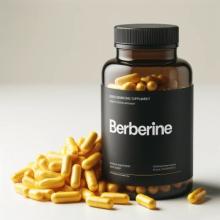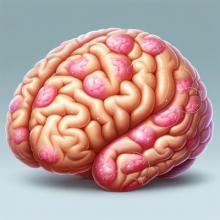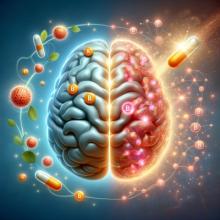Recent research has opened up promising possibilities for reversing brain aging and repairing damage, by reactivating neural stem cells (NSCs). A study published in Nature Communications revealed the key role of SUMOylation, a process where proteins are modified by small ubiquitin-like modifiers (SUMO), in controlling NSC reactivation. By regulating the Hippo pathway, which controls NSC quiescence (inactivity), SUMOylation activates NSCs and promotes brain repair.
Alzheimer's

A supplement I take regularly is berberine. I take 500mg two times a day. Berberine benefits can contribute significantly to health and longevity.
Berberine is a compound found in several plants, including goldenseal, barberry, and Oregon grape. It has been studied extensively for its potential health benefits, and recent research suggests several advantages of taking berberine as a supplement:

Recent research has delved into the relationship between high-fat diets and the development or progression of Alzheimer's, a neurodegenerative diseased characterized by memory loss and cognitive decline. These studies, primarily conducted on Alzheimer's disease mouse models like APP/PS1 and 5XFAD, offer new insights into how dietary fats might influence Alzheimer's pathologies and cognitive deficits.

Introduction to Fenugreek and Alzheimer's
This formidable foe in the realm of neurodegenerative diseases affects millions worldwide, ruining the golden years of many seniors. Amidst the relentless search for effective treatments, Fenugreek has emerged as a beacon of hope. This article explores the promise it holds as a new treatment for Alzheimer's Disease. We explore its scientific basis, historical significance, current research, and practical applications.

Introduction to B Vitamins
B vitamins are a group of water-soluble vitamins that play vital roles in cell metabolism and brain health. They are essential nutrients that must be obtained from the diet. B vitamins, including B12 (cobalamin), B9 (folic acid), and B6 (pyridoxine), have been particularly identified for their impact on cognitive function and their potential to slow the progression of Alzheimer's disease, a condition characterized by brain atrophy and cognitive decline.
Copyright 2024-2025 Edwin M. Basye. All rights reserved.

